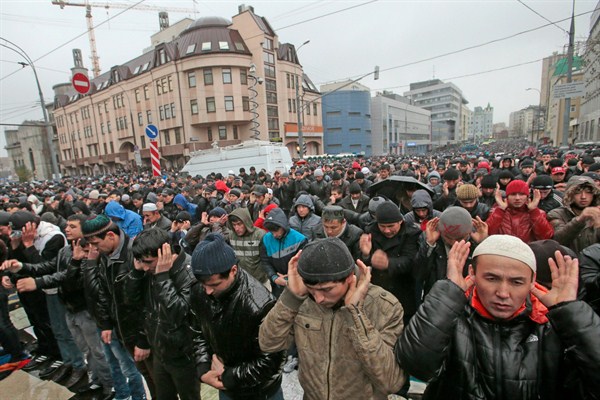In September 2015, an elaborate ceremony marked the opening of a mosque that promises to be the grandest in Europe. The mosque—a sprawling white marble complex with emerald and golden domes and minarets that spiral toward the sky—emerged not in Paris, Brussels, Berlin or London, but in the center of Moscow. There it joined a cityscape dominated by the golden onion domes and crosses of the Russian Orthodox Church and the bell towers of the Kremlin.
The event took on special meaning for many of the Russian capital’s Muslim residents, mostly migrants from across the country and the former Soviet republics of the Caucasus and Central Asia. Though population estimates vary widely, some sources indicate that Moscow is home to nearly 4 million Muslims, who long ago exceeded the capacity of the city’s mosques. And for all of the xenophobia and racism that Russia’s Muslims are often confronted with on the streets of Moscow and in Russian media, the celebration of the mosque’s opening was a priority for Russia’s political elites.
Indeed, Russian President Vladimir Putin presided over the ceremonies, signaling the importance that the Kremlin attaches to Islam. In a speech broadcast on Russian television and covered widely by Russian media, Putin proclaimed that the mosque would become a spiritual center for all of Russia’s Muslims and “a source of enlightenment, the spread of humane ideas and true, authentic Islamic values.” The mosque would unify “not just Muslims but people of other faiths in the name of a shared common good,” he added, while emphasizing that the Quran calls on believers to “vie with one another in virtuous works.”

